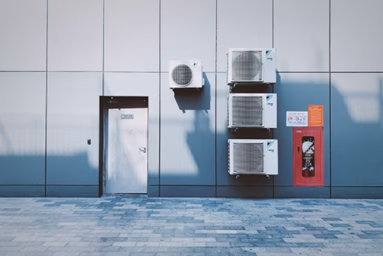Choosing the right heating, ventilation, and air conditioning (HVAC) system helps to ensure year-round comfort in your home or business. With so many options available, picking the ideal system can be difficult if you do not know what to look for.
The right HVAC system keeps your environment comfortable, ensures long-term efficiency, and provides good indoor air quality. Here are seven factors to consider, whether you’re replacing an outdated unit or installing a new system.
Cost
Cost is a major factor to consider when choosing an HVAC system. You must weigh the initial purchase and installation expenses and the long-term operating and maintenance costs. A cheaper system may have higher energy bills over time, while a more efficient system can help save costs. Balancing the upfront costs with long-term value is necessary for long-term value.
Energy Efficiency
When choosing an HVAC system, energy efficiency is important because it directly affects your utility bills and the environment impact. Look for systems with higher ENERGY STAR ratings, which indicate better performance and lower energy consumption. You should also consider how to install a heat pump if you’re looking for higher energy efficiency.
Installation and Maintenance Needs
When choosing an HVAC system, you must determine its installation and maintenance needs. Proper installation ensures optimal performance, so you must hire experienced professionals. Also, consider the system’s maintenance requirements since some units require regular servicing to maintain efficiency and lifespan. For instance, rooftop HVAC units may be easier to install and maintain.
Durability
Durability is essential when choosing an HVAC system because it affects long-term reliability and replacement frequency. A durable unit built with high-quality components can withstand wear and extreme conditions, reducing the need for repairs. Look for brands that are popular for longevity; also, check the system’s warranty to ensure you’re buying one that can perform well for a long time.
Unit Size and Capacity
A HVAC system’s unit size and capacity greatly affect its performance. An undersized unit may struggle to ensure comfort, while an oversized one can cycle too frequently, wasting energy and wearing out faster. Proper sizing depends on the following factors:
- Climate
- Insulation
- Square footage
- Sun exposure and shading
Obtain a professional load calculation to ensure you choose a system that meets your heating and cooling needs.
Noise Levels
While often overlooked, noise levels are important when choosing an HVAC system. Quieter units improve indoor comfort, especially in bedrooms, offices, and living areas. Look for systems with low decibel ratings and sound-dampening features. Modern models are typically quieter and ideal for maintaining a peaceful environment.
Add-ons and Features
Certain add-ons and features can significantly improve your HVAC system’s performance and overall experience. Options like zoning systems, smart thermostats, air purifiers, and humidity control offer improved comfort, energy savings, and convenience. Consider which features match your lifestyle and climate needs. While these upgrades may be costly, they provide long-term benefits.
Endnote
When choosing an HVAC system, you must consider certain factors to ensure comfort. These include the cost, energy efficiency, installation and maintenance needs, durability, unit size and capacity, noise levels, add-ons, and features.

